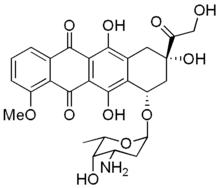Sieja K, Talerczyk M. Selenium as an element in the treatment of ovarian cancer in women receiving chemotherapy. Gynecol Oncol 2004;93:320-7.
[ILLUSTRATION OMITTED]
Sixty-two women with ovarian cancer received chemotherapy (cisplatin [100 mg/[m.sup.2]] and cyclophosphamide [600 mg/[m.sup.2]). Half were also assigned to a multi-nutrient supplement administered q.i.d (providing a daily total of 200 [micro]g/day selenium [Se], 100,000 I.U. [beta]-carotene [the form of B-carotene was not specified], 800 mg vitamin C, 144 IU vitamin E [the form of Vitamin E was not specified], 18 mg vitamin B2, and 180 mg niacin) for three months. The other women acted as a control, without a placebo. Measurements included a CBC and cisplatin side effects, which were observed at months 1-3.
The group of women receiving the antioxidant supplementation and chemotherapy had a reduced fall in their WBC when compared with the control group (P value 0.0001) Nausea/vomiting increased 5% between months 1 & 3 in the control group, and decreased 56% in the supplement group (P value "0.0000"). Diarrhea in the control group increased 69% between months one and three but decreased 40% in the supplement group (P value "0.0000"). Women in the antioxidant group also fared better in hair loss. Hair loss increased 65% between months one and three in the control group, but increased by only 16% in the supplement group (p<0.04). Results were similar for anorexia with scores increasing in the control group, and falling in the supplement group by 65%. (P value "0.0000"). Other symptoms that reached statistical significance and were improved in the intervention group and problematic in the chemo only group, included malaise, weakness, stomatitis, and abdominal pain.
Commentary: These findings suggest that a simple antioxidant formula of vitamin E, selenium and beta carotene plus small amounts of vitamin B2 and niacin can significantly reduce signs and symptoms induced by a cisplatin in those who are being treated for ovarian cancer. Although some practitioners are still concerned about using antioxidants with chemotherapy, little evidence supports that perspective. In fact, the opposite seems to be supported by significant scientific evidence and that using chemotherapy without antioxidants may create a significantly greater risk than taking chemotherapy with antioxidants (J Am Coll Nutr 2001;20:450S-63S; Nutr Cancer 2000;37:1-18; Altern Med Rev 1999;4:304-29).
by Tori Hudson, ND
Dr. Hudson is Professor, NCNM; clinical professor, Bastyr U/SCNM; Medical Director, A Woman's Time
2067 N.W. Lovejoy * Portland, Oregon 97209 USA
503-222-2322 * womanstime@aol.com
COPYRIGHT 2005 The Townsend Letter Group
COPYRIGHT 2005 Gale Group



